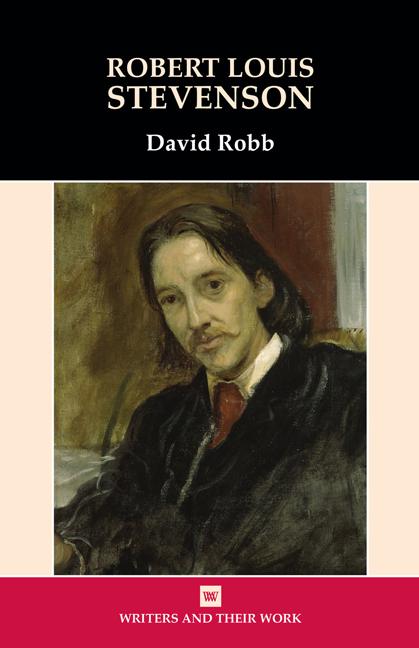Book contents
- Frontmatter
- Dedication
- Contents
- Acknowledgements
- Biographical Outline
- Abbreviations and References
- 1 Introduction: Travels With and Without a Donkey
- 2 ‘A brilliant and romantic grace’
- 3 ‘So easily the master of us all’
- 4 ‘Voices in the Darkness’
- 5 ‘Under the wide and starry sky’
- Notes
- Select Bibliography
- Index
3 - ‘So easily the master of us all’
- Frontmatter
- Dedication
- Contents
- Acknowledgements
- Biographical Outline
- Abbreviations and References
- 1 Introduction: Travels With and Without a Donkey
- 2 ‘A brilliant and romantic grace’
- 3 ‘So easily the master of us all’
- 4 ‘Voices in the Darkness’
- 5 ‘Under the wide and starry sky’
- Notes
- Select Bibliography
- Index
Summary
Edmund Gosse, writing to the author regarding the newly published Prince Otto (22 November 1885; Maixner 188–90), thus enthuses about what he regarded as the best aspects of that ambitious new work, and sums up much of the feeling with which London literary circles regarded Stevenson by the mid-1880s. Gosse and the others, particularly Henley and Colvin, had become his intimate friends, and continued to see themselves as, in a sense, midwives to his ever-emerging talent. This comfortable situation, however, had been made considerably less easy with Stevenson's marriage with Fanny Osbourne, who regarded herself as also something of a writer and critic, and whose influence on her new husband seldom coincided with theirs.
Considered geographically, the Stevenson marriage fell into three main phases: an attempt to live in France, a return to Britain which soon saw them settled in Bournemouth, then the journey west across the Atlantic which took them first to New York State, then to the South Seas and Samoa. Readers and critics the world over would probably now regard the supreme highlight of the Bournemouth years to be the writing of Jekyll and Hyde, of all Stevenson's many publications the one which has had both the widest and deepest impact on the modern consciousness. Only a little less universally appreciated, and usually more highly rated as an artistic achievement, was Kidnapped, the work, one could argue, which most perfectly satisfies the whole gamut of Stevenson's audiences, from children to literary critics. Taken along with Treasure Island, these three works constitute the core of Stevenson's place – a secure place – in the continuing awareness and esteem of posterity. Other works may run them close: clearly The Master of Ballantrae is most memorable, the fictions about the South Seas are rightly argued for as major and distinctive achievements which ought to be more widely known and appreciated, and (perhaps by Scottish readers in particular) the unfinished Weir of Hermiston has been accorded a classic status partly based on what it contains, and partly on the drama and tragedy of its stark incompleteness.
In addition, however, to the two great products of his time in Bournemouth, the central point in Stevenson's brief career, there are various other works which are not only fascinating in themselves but which serve to complicate and enrich our sense of the diversity of his writing.
- Type
- Chapter
- Information
- Robert Louis Stevenson , pp. 50 - 94Publisher: Liverpool University PressPrint publication year: 2014

